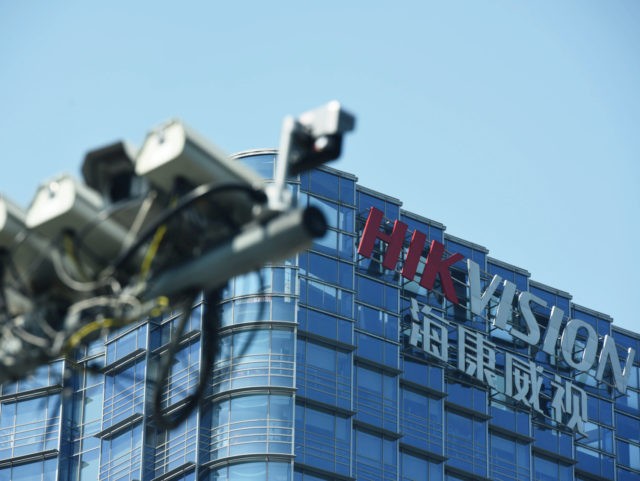Chinese-made surveillance cameras in Britain are made by companies linked to human rights atrocities and can pick up sound with hidden microphones, with this capability able to be activated remotely, according to the British government’s “snooping tsar”.
Professor Fraser Sampson, who serves as the official Biometrics and Surveillance Camera Commissioner, tasked with reviewing the use of surveillance technology and personal biometric information, particularly by the state, has written to government ministers expressing his concern about “the clear ethical and human rights issues involved in public procurement of surveillance technology from companies associated with atrocities in China” and “the security risks presented by some state-controlled surveillance systems covering our public spaces.”
“[P]ublic space surveillance is increasingly intrusive and modern surveillance cameras are built with the maximum functionality inside at the point of manufacture,” Professor Sampson said with respect to the security risks.
He explained that “[t]his means they come with capabilities that can be switched on remotely in the future as and when they are needed, for example, the ability to pick up sound or read vehicle number plates” — in other words, the cameras have microphones embedded in them which may be activated remotely, possibly by hostile foreign actors.
The professor went on to say that knowing what such systems are doing — or rather, “not doing” — is “increasingly difficult to detect technically”, be that in “our streets, our sports grounds, or our schools.”
In terms of ethical considerations, Professor Sampson noted that “the clear ethical and human rights issues involved in public procurement of surveillance technology from companies associated with atrocities in China” has been a concern of his since he accepted his position, noting that the British government itself has “formally recognised that widespread, systematic human rights violations are taking place in Xinjiang, including the extra-judicial detention of over a million Uyghur Muslims and other minorities, extensive and invasive surveillance targeting minorities, forced labour and suppression of births.”
Surveillance technology, Sampson noted, has been key to the Chinese Communist Party’s implementation of this oppressive regime, and he has “repeatedly asked one [Chinese] company, Hikvision” to “clarify the extent of any involvement they have had” in outfitting Uyghur concentration camps.
Eight months on, however, he has yet to receive any reply on this question, or the question of whether Hikvision “accept that such things are even taking place”.
Notably, half of the borough councils in the British capital of London have deployed surveillance technology supplied by Hikvision and another Chinese company, Zhejiang Dahua Technology Co Ltd, with the former being Britain’s biggest provider of CCTV equipment in 2016.
Professor Sampson noted with appreciation that the Secretary of State for Health and Social Care, Sajid Javid, had announced he was “prohibit[ing] any further procurement of Hikvision surveillance technology by his department” over Easter — although he has not indicated that he will be removing equipment already in place, and there is no broader ban on procurement by other government departments and state bodies.
Indeed, Hikvision was invited to participate in a Security and Policing trade fair by Britain’s Home Office — which has broad responsibility for policing, border control, and national security — as recently as 2020, not long after the Donald Trump administration in the United States had blacklisted the company entirely.

COMMENTS
Please let us know if you're having issues with commenting.